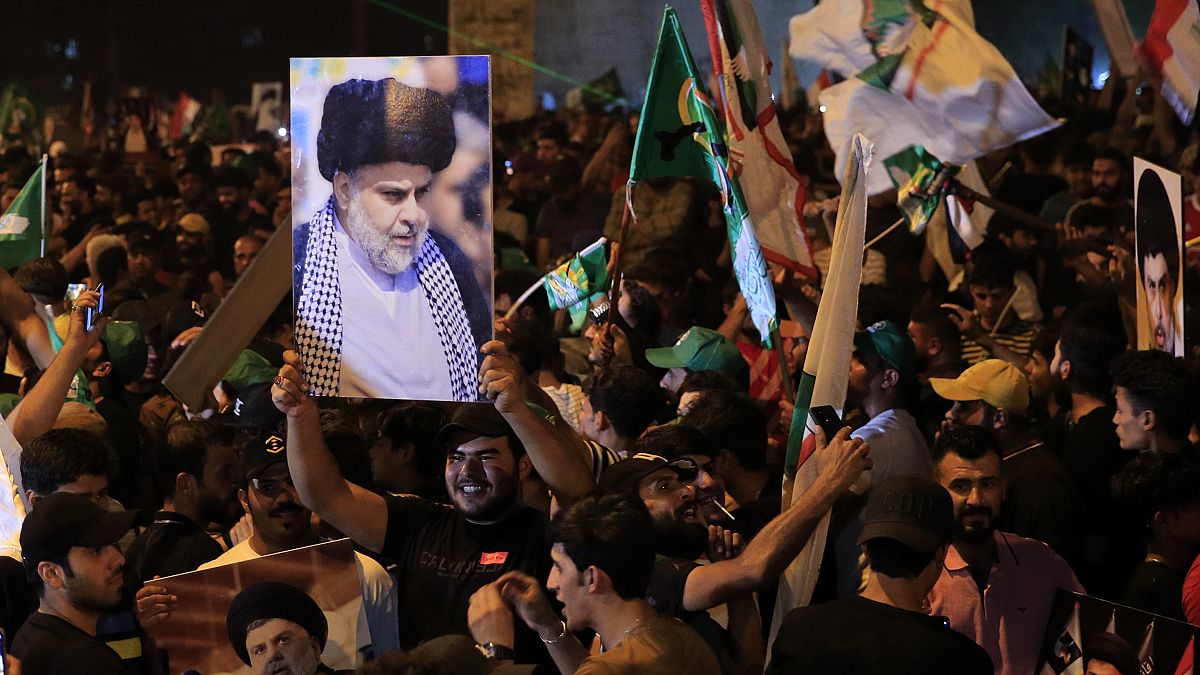Populist Shi'ite cleric Muqtada al-Sadr has won Iraq's parliamentary elections, according to initial results.
Populist Shi'ite cleric Muqtada al-Sadr looks set to have retained the biggest share of seats in Iraq's parliamentary elections, according to initial results.
The results showed al-Sadr leading in several of Iraq's 18 provinces, including the capital Baghdad.
The maverick leader is remembered for leading an insurgency against US forces after the 2003 invasion. He appears to have increased his movement's seats in the 329-member parliament from 54 in 2018 to more than 70.
Supporters of the influential cleric's political movement were seen celebrating in Baghdad's Tahrir Square.
"Today, we congratulate the Iraqi people on the victory of the reform project led by the leader Muqtada Al-Sadr. Today we feel that Iraq has been liberated. We haven't had this feeling since 2003. Today, Iraq is truly liberated from corruption," supporter Fadhil Al Taie said.
Favoured to come out top, the Fatah Alliance – representing pro-Iran Shiite militias – has emerged as the biggest loser in the polls, suffering a sharp decline from 48 seats in 2018 to only about a dozen in 2021.
With 94% of the ballot boxes counted, none of the competing political blocs has won a majority in parliament and consequently been able to name a prime minister, but al-Sadr's movement will be able to take a leading role.
This weekend's election was held early as a concession to a youth-led popular uprising calling for reforms in 2019. More than 600 people were killed, and voter apathy has replaced the passion.
Voter turnout was 41%, an all-time low in the post-Saddam Hussein era signalling widespread distrust of the country’s leaders and the vote for a new parliament.
